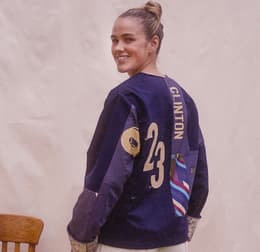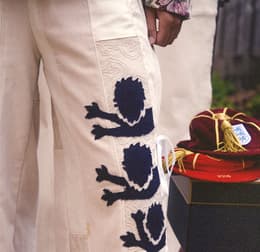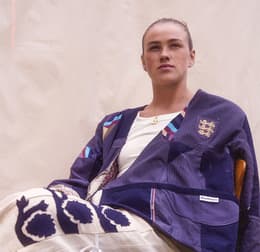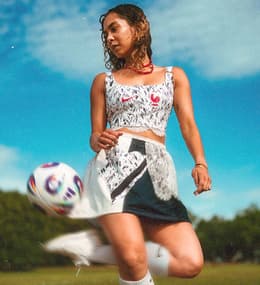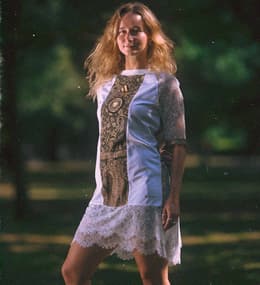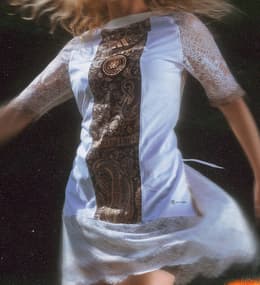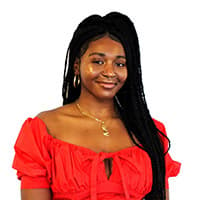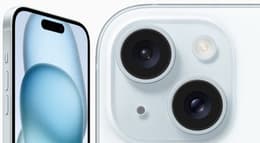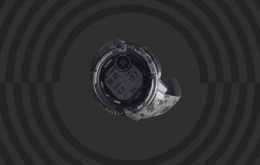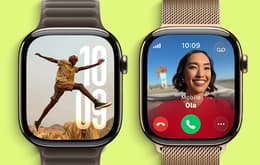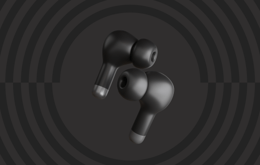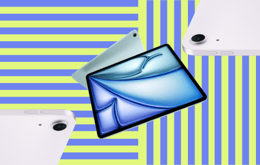
Creative agency Slow Projects has teamed up with England midfielder Grace Clinton for an upcycled Women's Euro 2025-inspired collection.
It’s no secret that the fashion sector has an undeniable problem with waste. Fast fashion chains either haven’t implemented proper recycling solutions or they’re chucking out old collections instead of giving items a second life. In the ethical fashion sector, there’s a focus on developing new materials that cause less impact to the environment. It’s innovative, sure. But what if we could use what we already have?
Ed Sonnex thinks it’s possible. “We should always use what already exists in the world, whether that's in tech, fashion or anything,” he says. “Within the fashion industry, there's a lot of push for new textiles that are the most sustainable. Yet the most sustainable thing we can do is use and wear the clothes that already exist, rather than making anything from scratch.”
Ed is the founder of Slow Projects, a Deptford-based creative studio with a focus on upcycled fashion. Working alongside Managing Director Jordan Oates, they exist to say no to “fast” anything. This summer, they’ve collaborated with Back Market to create a Women’s Euros 2025-inspired capsule collection, with a little help from some refurbished tech. Together they are keen to show consumers how devices from our marketplace can be a vehicle for creativity.
Slow Projects is Ed’s baby. It started as a hobby. The 30-year-old was fascinated by footwear, so he started playing with materials and figuring out how to make them from scratch, but that passion quickly evolved into clothing. Ed met Jordan in late 2022 whilst both working at Formula E, they bonded quickly over their love of fashion and sustainability.
A timely redundancy catapulted both of them into taking the plunge and making Slow Projects a fully-fledged business. And it was sports that quickly became their creative inspiration. “I was going to games at the Emirates and enjoyed watching the women's games far more than the men's,” Ed says. “It was such a nice atmosphere and everyone was so kind [that] it reminded me of what support could look like for fans again. I happened to go to a men's game a week after that first experience, and it felt so corporate and almost soulless in a way. That's something that struck a chord with me.”
Any sports fan can tell you that football is a sector synonymous with fashion. The iconic 90s stylings of Posh and Becks or in more recent years Jack Grealish in his Gucci era. Slow Projects became curious about how players showcase identity through adorning their bodies, and the intricacies, care, and investment that goes into creating uniforms. What brought discomfort was the throwaway culture attached to them too. So what better time than the Women’s Euros 2025 to think of new ways to showcase sports style, and make football fashion sustainable?
To create the Back Market x Slow Projects collection, the duo scouted fans and professionals in women’s football to create three unique sets. Each player represented a different European nation – Talia Dund, a French national fan, amateur footballer Verena Camesasca, who supports Germany, and Grace Clinton, Manchester United player and England International midfielder. “Grace’s [design] embodied empowerment and comfort. Talia was very strong and statement-led, and Verena was very soft and elegant with the way she went about things. That’s kind of what sport represents; all those different cultures, backgrounds, personalities coming together,” Ed says. “It’s a mixture of unique experiences through the football lens.”
The team co-designed pieces using found materials and experimenting with salvaged fabric to form their designs. But it was refurbished tech that helped the team visualise those initial ideas.
“I've always been very tech-oriented,” Ed says, “All of my sketching is done on an iPad. It unlocks my ability to demonstrate my visual ideas in a way that I've never actually been able to do on paper.” We decked out Ed and Jordan with a range of refurbished items – a Reflex A7 IV camera to capture content, an iPad Pro 11 for sketching, an iPhone 16 Pro Max for social content capture and comms, and a MacBook Pro M4 for project management.
Ed knows firsthand that just because an item is secondhand doesn’t mean it’s the second best choice for creatives. “I was working in tech at a time when there was a lot of push out of stuff, after stuff, after stuff,” Ed continues. “Even internally I was using older devices that did exactly what we needed them to do. It's the same for everything – keeping things alive longer makes a bigger difference.”
While garments from this project are not available for sale, the duo hopes that visibility of this collection will spark discourse around fast fashion, fast tech and the importance of community within sport.
“There's no benefit from a cost and environmental standpoint,” Jordan says. “It was really refreshing for me – especially hearing from Verena – to see the impact that football can have beyond just being a fan. It’s not just about how far someone can kick a ball, it’s about the deeper social and emotional value that people often don’t even realise. Hopefully, this project shines a light on that and helps people see the broader significance.”

